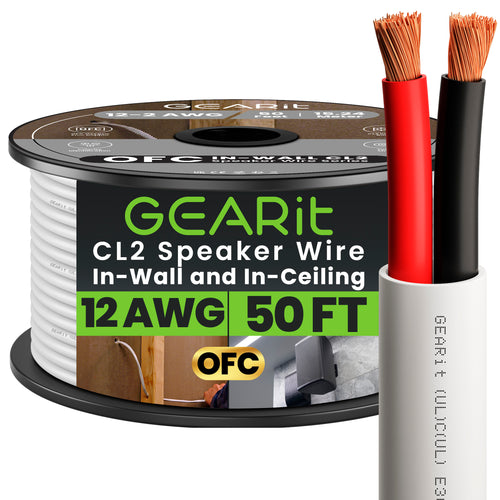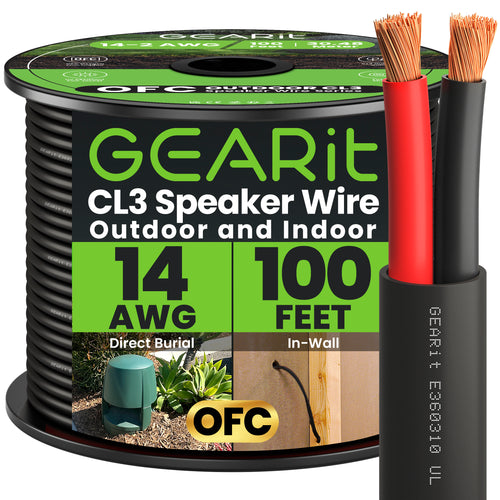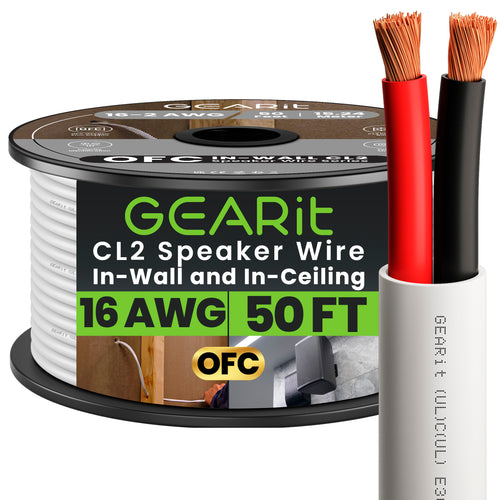
In the world of audio enthusiasts, debates over speaker wire thickness and its impact on sound quality have raged for decades. While some swear by thicker wire as the key to pristine audio reproduction, others remain skeptical of its purported benefits. So, what's the truth? Does thicker speaker wire really deliver superior audio quality, or is it just a myth perpetuated by audiophiles? Let's delve into the science behind speaker wire thickness and explore whether thicker wire is indeed better for audio quality.
Understanding Speaker Wire Basics
Before we tackle the question of wire thickness, let's first understand the role of speaker wire in audio reproduction. Speaker wire serves as the conduit through which electrical signals travel from your amplifier or receiver to your speakers. Its primary function is to minimize resistance and impedance, ensuring that the signal reaches the speakers with minimal loss or distortion.
The Impact of Wire Thickness
The thickness of speaker wire, often measured in gauge (AWG), plays a significant role in its ability to transmit electrical signals effectively. Thicker wire generally has lower resistance and impedance compared to thinner wire, allowing for greater conductivity and less signal loss over long distances. However, the importance of wire thickness varies depending on several factors:
Distance: For longer cable runs, thicker wire can help mitigate the effects of resistance and maintain signal integrity over greater distances.
Power Handling: Speakers with higher power requirements may benefit from thicker wire to minimize voltage drop and ensure sufficient power delivery.
Speaker Impedance: Speakers with lower impedance (measured in ohms) may require thicker wire to accommodate higher current flow and prevent overheating.

Debunking the Myth
While thicker wire can offer advantages in certain scenarios, it's essential to debunk the myth that thicker wire automatically translates to better audio quality. In most home audio setups, particularly those with short cable runs and moderate power requirements, the difference in sound quality between thick and thin wire is often imperceptible to the human ear.
Factors Affecting Sound Quality
When it comes to audio quality, speaker wire thickness is just one piece of the puzzle. Several other factors play a more significant role in determining the overall sound reproduction:
Speaker Placement: Proper speaker placement and room acoustics have a profound impact on sound quality, affecting imaging, clarity, and tonal balance.
Component Quality: The quality of your amplifier, receiver, and speakers themselves has a far greater influence on sound quality than the thickness of your speaker wire.
Source Material: The quality of the audio source, whether it's a high-resolution digital file or a compressed streaming format, ultimately determines the fidelity of the sound.
Conclusion
In the realm of audio equipment, it's easy to get caught up in debates over technical specifications and perceived performance benefits. While thicker speaker wire can offer advantages in specific scenarios, its impact on overall sound quality is often exaggerated. Instead of obsessing over wire thickness, focus on using high quality speaker wiring. GearIT carries any kind of speaker wire you might need for any project you're about to tackle. Choose from any length and gauge and find the right speaker wire for your build so you can enjoy your favorite music and movies to the fullest, regardless of wire thickness.



























































